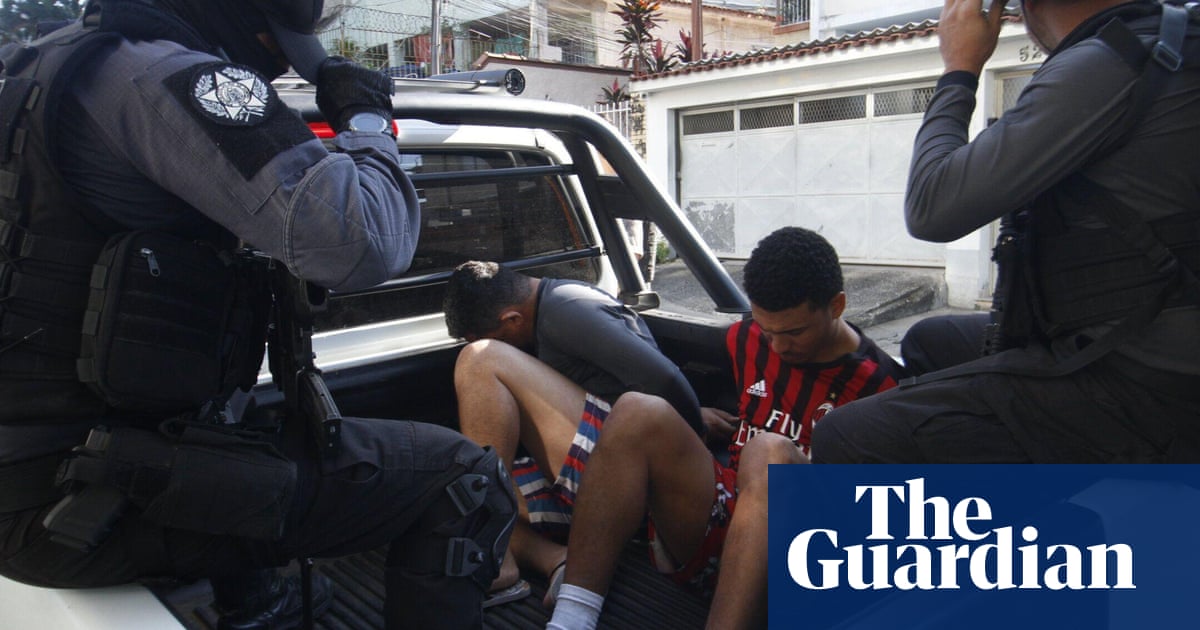The Brazilian government has rejected a request by the US state department to designate two major criminal gangs as terrorist organizations, according to Mario Sarrubo, Brazil’s national secretary of public security.
Sarrubo said the request was made on Tuesday during a meeting between US and Brazilian officials in Brasília.
The US officials were concerned about the gangsPrimeiro Comando da Capital, known as PCC, and Comando Vermelho, known as CV, which control territories in several Brazilian cities and are believed to have members in the US.
Trump has been trying to tie his aggressive crackdown on immigration to the presence of members of Latin American criminal gangs in US cities. Earlier this year, the US government designated several crime factions as terrorist organizations,including Venezuela’s Tren de Aragua and El Salvador’s MS-13, as well as Mexican cartelsand Haitian gangs.
“We don’t have terrorist organizations here, we have criminal organizations that have infiltrated society,” said Sarrubo. But Brazilian law, he added, only considers organizations that violently clash with the government for religious or racial reasons to be terrorists.
In recent weeks, the Trump administration has deported hundreds of Latin American immigrants, alleging they were gang members, though it presented little evidence of their criminal ties.
At the meeting in Brasília, US officials informed their Brazilian counterparts that their request was part of an effort to address immigration and criminal gangs with a transnational presence, saying they were priorities for the Trump administration, said one source who was present.
US officials said a terrorist designation could help the government apply sanctions, raise resources and target criminal supply chains, the same source added.
According to this source, US officials said the FBI had reported that the PCC and the Comando Vermelho had cells in 12 US states, mainly Massachusetts, New Jersey, New York, Florida, Connecticut and Tennessee.
Those reports, the source added, alleged that the gangs trafficked guns and laundered money through Brazilians who traveled to the US, adding that 113 people were denied visas to enter the country because of connections to organized crime in 2024 alone.
On Monday, the office of Senator Flavio Bolsonaro, son of the former Brazilian president Jair Bolsonaro, said he met with Trump Organization officials to deliver a dossier that he said included intelligence information that tied the PCC and the CV to terrorist acts.
The US embassy in Brasília did not immediately reply to a request for comment.
